Top 5 MRI Content of 2023
Diagnostic Imaging
DECEMBER 20, 2023
Catch up on the most well-read magnetic resonance imaging (MRI) articles from 2023.
This site uses cookies to improve your experience. To help us insure we adhere to various privacy regulations, please select your country/region of residence. If you do not select a country, we will assume you are from the United States. Select your Cookie Settings or view our Privacy Policy and Terms of Use.
Cookies and similar technologies are used on this website for proper function of the website, for tracking performance analytics and for marketing purposes. We and some of our third-party providers may use cookie data for various purposes. Please review the cookie settings below and choose your preference.
Used for the proper function of the website
Used for monitoring website traffic and interactions
Cookies and similar technologies are used on this website for proper function of the website, for tracking performance analytics and for marketing purposes. We and some of our third-party providers may use cookie data for various purposes. Please review the cookie settings below and choose your preference.

Diagnostic Imaging
DECEMBER 20, 2023
Catch up on the most well-read magnetic resonance imaging (MRI) articles from 2023.

Diagnostic Imaging
FEBRUARY 2, 2024
In contrast to high-school athletes from non-contact sports, adolescent football players had a variety of brain changes, including numerous areas of cortical thinning, increased sulcal depth and decreased coherence of neural signals in the frontal and medial regions, according to newly published magnetic resonance imaging (MRI) research.
This site is protected by reCAPTCHA and the Google Privacy Policy and Terms of Service apply.

Diagnostic Imaging
JUNE 1, 2023
The artificial intelligence (AI)-powered Ezra Flash reportedly enhances magnetic resonance imaging (MRI) and enables significant reductions in scan times and costs for full-body MRI.

Radiology Business
JANUARY 25, 2024
Another 36% think that both magnetic resonance imaging and computed tomography use the same technology to create diagnostic images.

Diagnostic Imaging
MAY 4, 2023
In a review of the literature, this author discusses the viability of artificial intelligence (AI), parallel imaging, compressed sensing and simultaneous multi-slice excitation for improving the scan times and use of magnetic resonance imaging (MRI) to facilitate CyberKnife treatment.

Diagnostic Imaging
MAY 3, 2023
The use of adjunctive artificial intelligence (AI) reportedly improved lesion level sensitivity by nearly 19 percent and patient level specificity by 14 percent for the diagnosis of clinically significant prostate cancer on multiparametric magnetic resonance imaging (MRI).

Diagnostic Imaging
JUNE 8, 2023
For the detection of obstructive coronary artery disease (CAD), stress cardiovascular magnetic resonance imaging (MRI) demonstrated a sensitivity rate of 81 percent and a specificity rate of 86 percent, according to a meta-analysis of 64 studies and data from 74,470 patients with stable chest pain.

Diagnostic Imaging
JUNE 22, 2023
In multiple datasets from a study involving reviewed data from over 2,700 bi-parametric magnetic resonance imaging (MRI) scans, a deep neural network demonstrated area under the receiver operating characteristic (AUROC) scores ranging from 87 to 89 percent for the detection of clinically significant prostate cancer.

Diagnostic Imaging
SEPTEMBER 14, 2023
A robotic guidance and placement system, the IGAR system can be utilized inside of a magnetic resonance imaging (MRI) bore.

Diagnostic Imaging
MAY 19, 2023
Through artificial intelligence (AI), Neurophet AQUA reportedly provides segmentation and analysis of brain magnetic resonance imaging (MRI) for possible brain atrophy in five minutes.

Professional Radiology
APRIL 17, 2023
Diagnostic Imaging is a great tool for your medical professional to use to detect issues sooner rather than later. There are several types of diagnostic imaging available today; each one used to visualize the internal structures of the body to assist doctors in diagnosis and treating various diseases and medical conditions.

Diagnostic Imaging
JULY 31, 2023
Through automated processing of diffusion-weighted magnetic resonance imaging (MRI) scans, the Advanced Neuro Diagnostic Imaging (ANDI) software performs detailed analysis of white matter microstructure.

Diagnostic Imaging
APRIL 13, 2023
In addition to a previously FDA-cleared brain magnetic resonance imaging module, the Advantis Platform features an artificial intelligence-powered prostate MRI module that offers simultaneous viewing of conventional and advanced sequences, and reportedly generates automated PI-RADS assessments.

Diagnostic Imaging
APRIL 17, 2023
Given the increasing prevalence of breast reconstruction, researchers discussed key signs of common complications on magnetic resonance imaging (MRI), ultrasound and other imaging during a recent presentation at the American Roentgen Ray Society (ARRS) 2023 Annual Meeting in Honolulu, Hawaii.

Diagnostic Imaging
JUNE 12, 2023
When reviewing radiographs, computed tomography (CT) scans or magnetic resonance imaging (MRI) scans, do you still turn to mnemonics every now and then to jog your short-term memory?
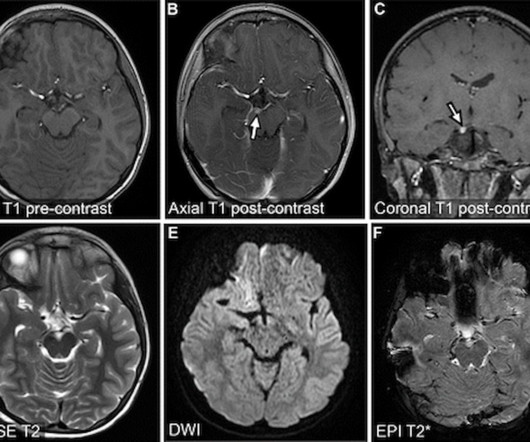
Diagnostic Imaging
MAY 19, 2023
In a recently published review, radiology researchers from the University of Wisconsin discussed the potential and key considerations for applying accelerated magnetic resonance imaging (MRI) protocols in the assessment of emergent and urgent conditions.

Associates in Medical Imaging
FEBRUARY 15, 2021
The answer to many of these questions could be just one—MRI. Offer Versatility and Clarity to Your Doctors and Patients MRI, or Magnetic Resonance Imaging , could be the most versatile imaging technology available to members of the medical community.

Future Teleradiology
NOVEMBER 30, 2023
Introduction: Embark on an illuminating journey into the realm of Magnetic Resonance Imaging (MRI), uncovering the wonders of this remarkable medical technology. Discuss the limitations and considerations associated with MRI, providing a balanced perspective on its capabilities. ** 7.
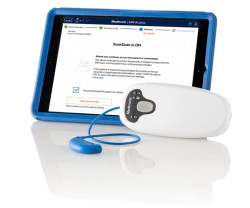
Diagnostic Imaging
MARCH 31, 2023
Consensus recommendations from the Society for Cardiovascular Magnetic Resonance provide pertinent insights on the unique abilities of cardiac magnetic resonance imaging (MRI) to provide optimal characterization of myocardial tissue and diagnosis of COVID-19-related myocardial injuries.
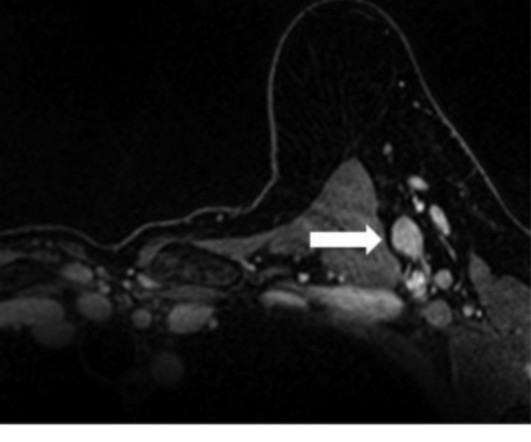
Diagnostic Imaging
MARCH 21, 2023
In a study of 128 patients who had breast magnetic resonance imaging (MRI) exams after COVID-19 booster vaccination, researchers noted that nearly 19 percent of the cohort had equal to or greater than 0.2 cm of increased lymph node cortical thickness.

Diagnostic Imaging
OCTOBER 19, 2023
In a newly published literature review, researchers examined the benefits of diffusion-weighted imaging (DWI) magnetic resonance imaging (MRI) for breast cancer characterization and monitoring of neoadjuvant chemotherapy, current drawbacks that thwart wider adoption, and emerging techniques that may enhance the modality’s effectiveness.
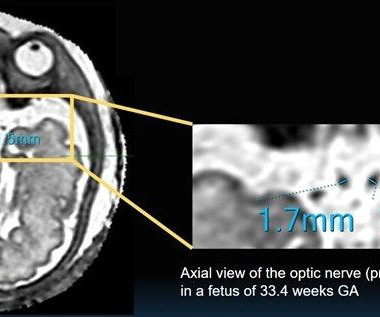
Diagnostic Imaging
APRIL 16, 2023
Three-dimensional (3D) slice-to-volume (SVR) fetal magnetic resonance imaging (MRI) has over six times the fetal optic pathway visualization rate of standard two-dimensional MRI, according to new research presented at the American Roentgen Ray Society (ARRS) 2023 Annual Meeting in Honolulu, Hawaii.
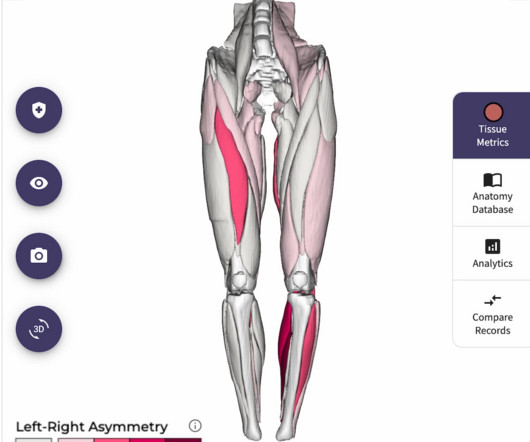
Diagnostic Imaging
OCTOBER 9, 2024
Based off rapid magnetic resonance imaging (MRI), the AI-enabled MuscleView reportedly offers 3D analysis of muscle volume, muscle asymmetry and intramuscular fat.
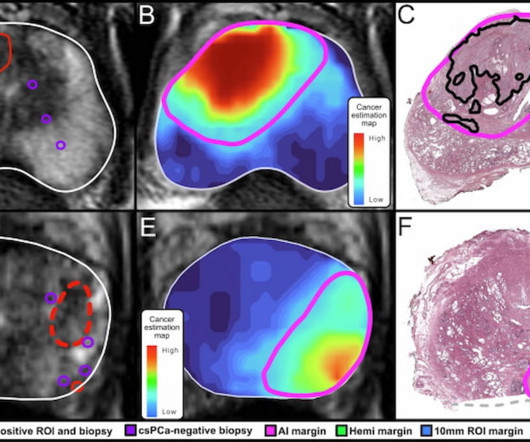
Diagnostic Imaging
JUNE 15, 2023
Combining multimodal imaging data and biopsy data, an artificial intelligence (AI) model provided enhanced sensitivity for defining prostate cancer tumor margins in comparison to conventional magnetic resonance imaging (MRI) assessments.
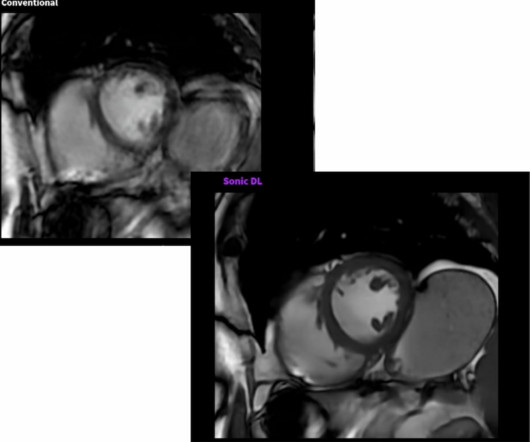
Diagnostic Imaging
JUNE 5, 2023
Powered by deep learning technology, Sonic DL reportedly facilitates the acquisition of cardiac magnetic resonance imaging (MRI) scans at 12 times the speed of conventional MRI systems.

Diagnostic Imaging
DECEMBER 20, 2024
Catch up on the most well-viewed magnetic resonance imaging (MRI) content from 2024.

Diagnostic Imaging
JUNE 9, 2023
FIRMM-pix, a brain magnetic resonance imaging (MRI) software module recently launched at the International Society for Magnetic Resonance in Medicine (ISMRM) conference, reportedly employs visual biofeedback and gamification that coaches patients to stay still during brain MRI exams.
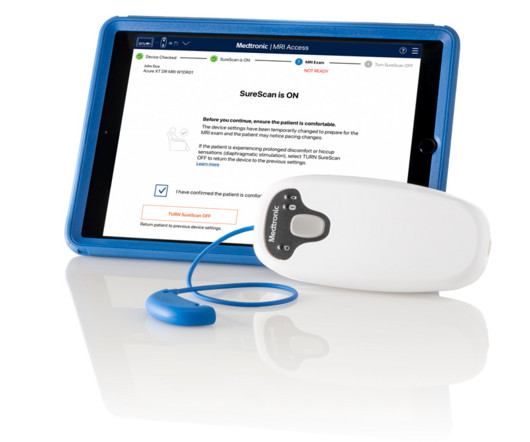
Diagnostic Imaging
APRIL 5, 2023
Offering built-in safety features and independent verification of magnetic resonance imaging (MRI) compatibility with cardiac devices such as pacemakers or implantable cardioverter defibrillator systems, the MRI Care Pathway app may enhance the efficiency of radiology workflows for MRI scans in patients with these devices.
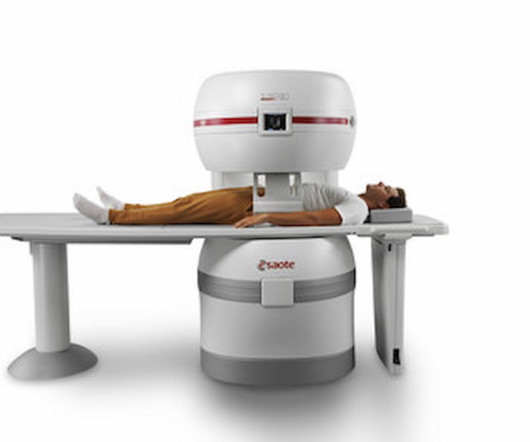
Diagnostic Imaging
OCTOBER 25, 2023
The update of the S-scan magnetic resonance imaging (MRI) system reportedly offers an improved ergonomic design, algorithms to enhance image quality and reduced scan times.
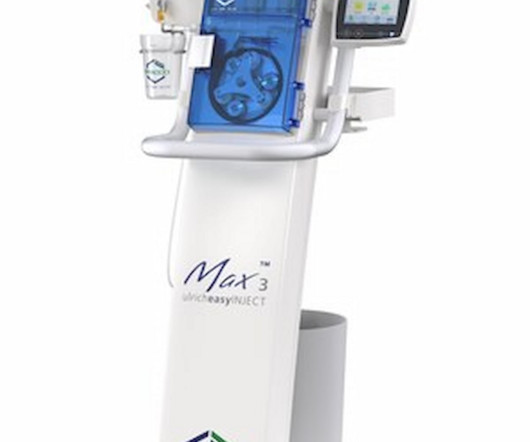
Diagnostic Imaging
DECEMBER 3, 2024
The Max 3 syringe-less injector reportedly offers improved efficiency and intuitive features with contrast media use for magnetic resonance imaging.

Diagnostic Imaging
MAY 1, 2023
reportedly facilitates workflow advances and offers a variety of tools, ranging from artificial intelligence (AI)-based segmentation to PI-RADS scoring support, to help improve interpretation of prostate magnetic resonance imaging (MRI). An update to Quantib Prostate 2.1, Quantib Prostate 3.0
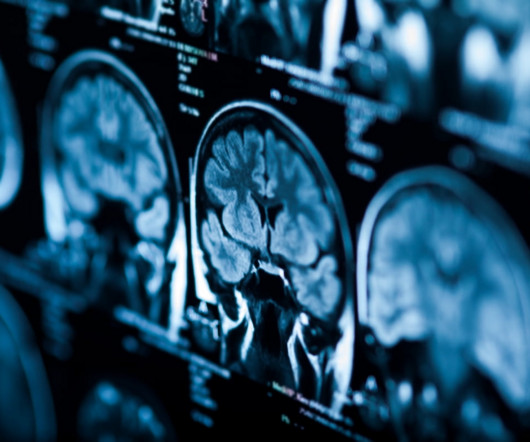
Diagnostic Imaging
JULY 3, 2023
Reportedly receiving the first Current Procedural Terminology (CPT) III code from the American Medical Association (AMA) for artificial intelligence (AI)-enabled brain magnetic resonance imaging (MRI) software, Icometrix says its adjunctive quantification software can be utilized for diagnosis and assessment of conditions ranging from Alzheimer’s disease (..)
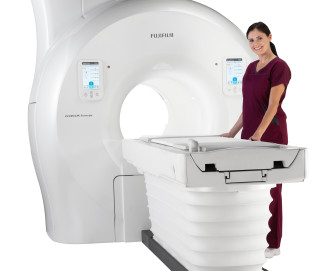
Imaging Technology
AUGUST 23, 2023
milla1cf Wed, 08/23/2023 - 19:22 August 23, 2023 — Fujifilm Healthcare Americas Corporation , a leading provider of diagnostic imaging and medical informatics solutions, announced FDA 510(k) clearance of its new 1.5 Tesla magnetic resonance imaging ( MRI ) system, the ECHELON Synergy.

Diagnostic Imaging
MAY 26, 2023
Conditional use of full-body magnetic resonance imaging (MRI) is reportedly permitted for patients using any of the models for the remede® System, an implantable nerve stimulation therapy indicated for the treatment of adults with moderate to severe central sleep apnea.
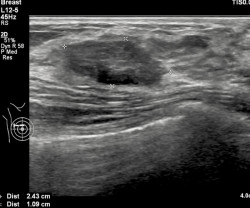
Diagnostic Imaging
APRIL 6, 2023
Emerging research suggests that 29 percent of patients with index breast magnetic resonance imaging (MRI) exams, 45 percent of Asian women and 30 percent of women living in the highest disadvantaged neighborhoods did not have follow-up imaging after a BI-RADS 3 diagnosis.
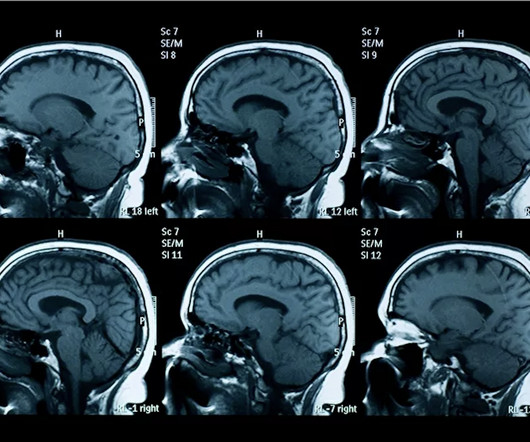
Imaging Technology
DECEMBER 11, 2023
milla1cf Mon, 12/11/2023 - 14:23 December 11, 2023 — Bracco Imaging S.p.A. , In September 2022, gadopiclenol was approved by the Food and Drug Administration ( FDA ) for its use in MRI of the CNS and the Body in the United States of America (USA) 3 , where the product is used in clinical practice at an increasing number of hospital systems.

Diagnostic Imaging
MAY 12, 2023
shared insights from two recent studies he co-authored on the use of artificial intelligence (AI) to improve initial assessment of left ventricular ejection fraction (LVEF) on echocardiography and ascertain cardiac risks associated with changes in the left ventricle sphericity index seen on magnetic resonance imaging (MRI).
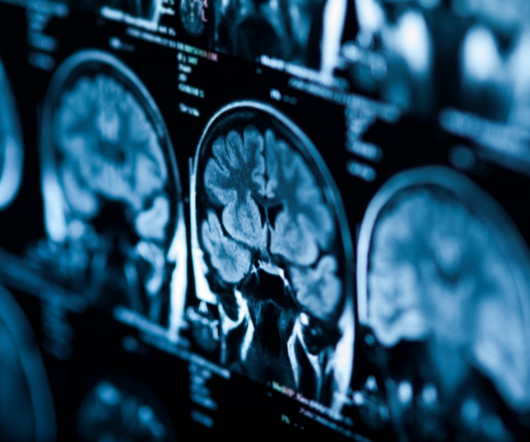
Diagnostic Imaging
APRIL 28, 2023
The artificial intelligence (AI)-powered Neuro Suite reportedly enables radiologists to access leading neurological AI algorithm solutions in the field, including the brain magnetic resonance imaging (MRI) segmentation capabilities of the Combinostics’ algorithm that can help differentiate degenerative pathologies such as Alzheimer’s disease and dementia. (..)

Future Teleradiology
DECEMBER 4, 2023
Introduction: Magnetic Resonance Imaging (MRI) is a captivating blend of artistry and expertise, unveiling the inner workings of the human body in intricate detail. From the technical mastery of MRI professionals to the artistic aspects of image interpretation, we celebrate the multifaceted nature of MRI insights.
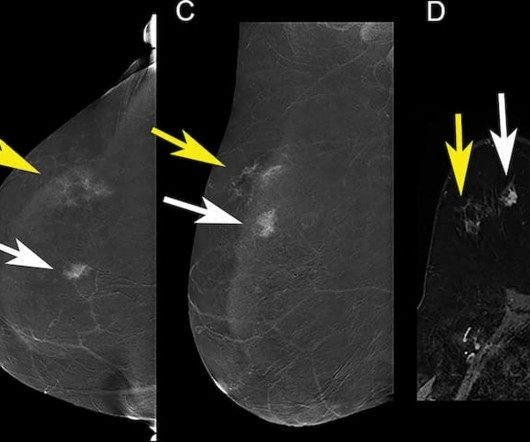
Diagnostic Imaging
JUNE 24, 2023
Ultravist is reportedly the first contrast agent to gain a specific indication for visualization of known or suspected lesions on contrast-enhanced mammography, which was recently recommended by the American College of Radiology as a supplemental imaging alternative to magnetic resonance imaging (MRI) in women with dense breasts at the age of 40 and (..)

Imaging Technology
JULY 9, 2024
Blue Earth Diagnostics, an indirect subsidiary of Bracco Imaging S.p.A., is a growing international molecular imaging company formed in 2014 which develops and commercializes positron emission tomography (PET) radiopharmaceuticals for use in imaging and therapy, according to a company statement. Bracco Imaging S.p.A.,

Professional Radiology
SEPTEMBER 13, 2022
Diagnostic imaging is an important tool used every day in healthcare to assist doctors in making the most informed decisions for their patients. Over the years, advancements in diagnostic imaging have greatly increased patients’ overall care, quality of life, and outcome when diagnosed with certain conditions.
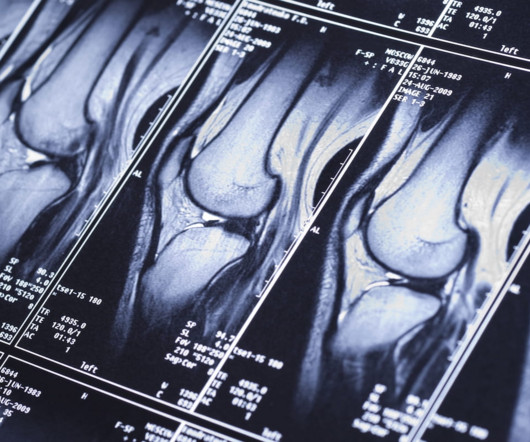
Diagnostic Imaging
APRIL 26, 2023
Researchers suggested that overnight use of a power-save mode on outpatient magnetic resonance imaging (MRI) devices in the United States could reduce annual energy consumption by 76,288.2 megawatt hours (MWh) and add up to $10.7 million in cost savings.
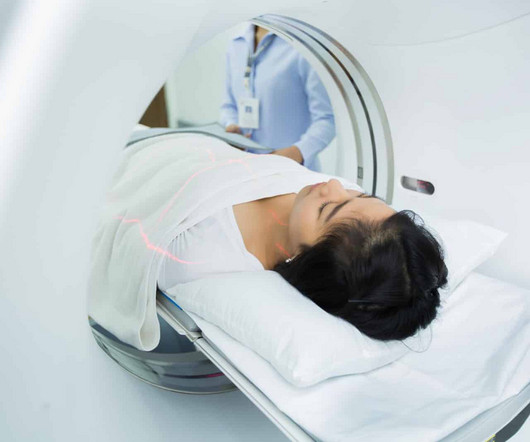
Professional Radiology
AUGUST 16, 2021
Diagnostic imaging tests are tools used by physicians to diagnose a range of medical conditions. Each of these imaging methods uses different technologies to create real-time images and videos of the internal structures of the body. There is no need to be anxious as imaging tests are non-invasive and painless.
Expert insights. Personalized for you.
We have resent the email to
Are you sure you want to cancel your subscriptions?


Let's personalize your content